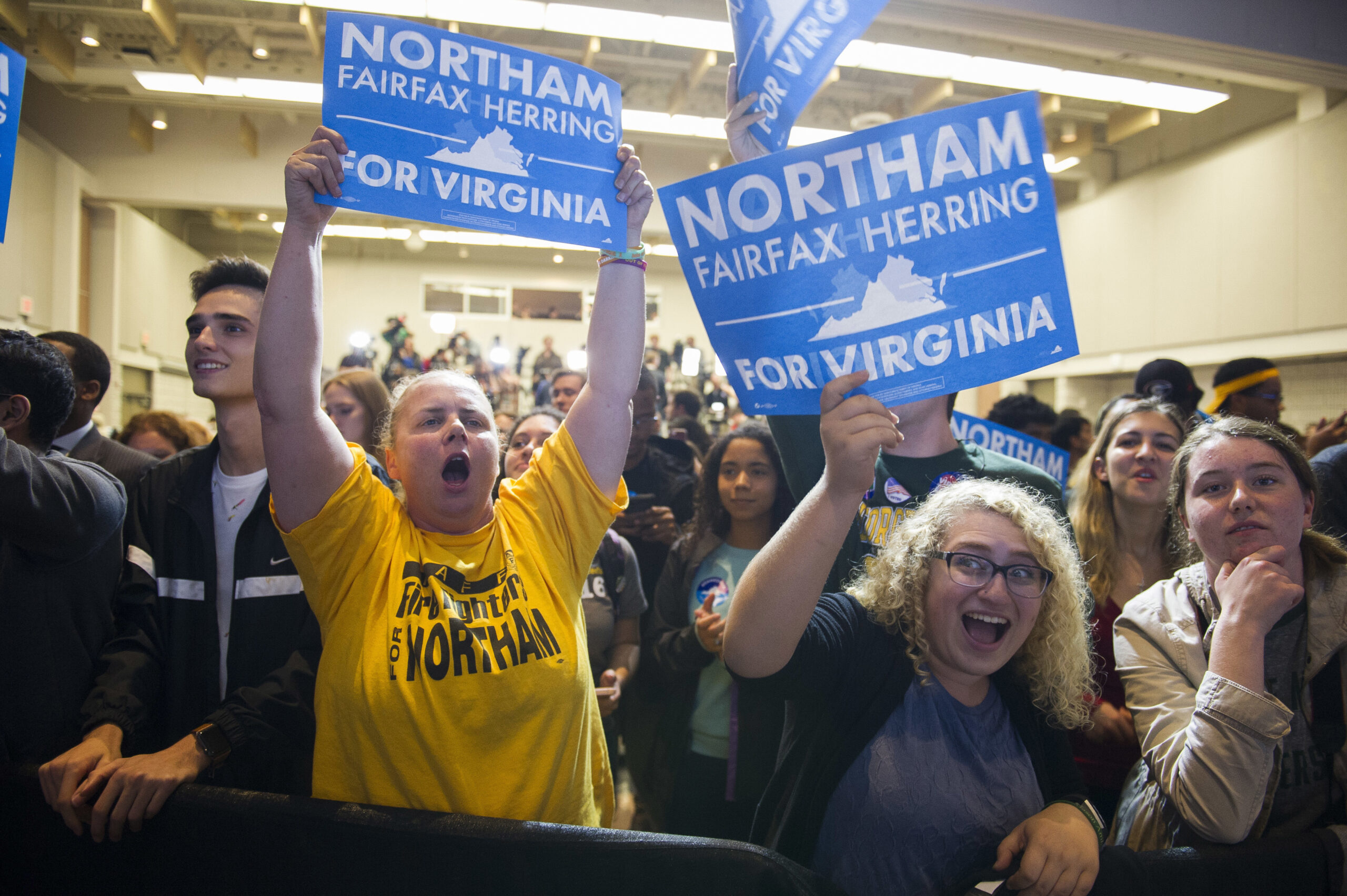For less than 24 hours this week, Democrats in Virginia celebrated a one-vote margin that seemed to have wrested control of the state’s House of Delegates away from Republicans for the first time in 17 years — potentially paving the way to expand health care to 400,000 people. But even though Democrats outperformed Republicans by a margin of nearly nine percentage points in the recent election, control of the lower chamber of Virginia’s state legislature will now come down to a random draw.
Democrat Shelly Simonds seemed to be the newly elected delegate from Virginia’s 94th District on Tuesday, after a recount of ballots cast in November’s election gave her a remarkable one-vote margin of victory over Republican incumbent Del. David Yancey. Simonds’ apparent win set Democrats up for a rare power-sharing situation, with a 50-50 split in the House of Delegates. Democrats had swept elections statewide in a surprising wave that included the biggest win for a Democratic gubernatorial candidate in the state since 1985.
But after a Republican appeal, a three-judge panel ruled that a single ballot that had been disqualified because the voter had marked both candidates was actually a vote for Yancey. So the vote is now tied again at 11,608 for each candidate. Virginia law says that a tied House race will be decided “by lot,” which can include drawing names out of a hat or a coin toss. Whoever is the loser after the lots are drawn could then ask for another recount of the original ballots.
Next Wednesday morning, election officials will draw one name at random out of film canisters tucked into a bowl, hat or other receptacle. That result may well determine both Medicaid coverage and the minimum wage in Virginia.
A majority of voters in Virginia have supported the Democratic Party over the last four election cycles, but Democrats have won only about one-third of legislative seats. In 2017, Democrats outperformed Republicans statewide by a margin of 231,000 votes. After the third of four recounts was completed this week, Republicans still maintain a 51-49 margin — a 15-seat swing from the 66-seat supermajority the GOP previously held with a 66-34 advantage. (Republicans still narrowly control the Virginia Senate with a razor-thin minority —19 seats in a 40-member chamber.)
Virginia is among 18 holdout states that have taken advantage of the Supreme Court’s 2012 decision to allow states to opt out of expanding Medicaid under the Affordable Care Act. Democratic Gov. Terry McAuliffe, who leaves office in January, has been repeatedly rebuffed by Republicans in his efforts to expand health care insurance for low-income Virginians. His successor, current Lt. Gov. Ralph Northam, who defeated former Republican Party chair Ed Gillespie in the November election, made expansion of the popular federal program a hallmark of his campaign. Earlier this year, an effort to expand Medicaid was killed on a party-line vote.
As things stand, district lines in Virginia are drawn by the state legislature, effectively allowing a state’s elected officials to pick the voters in their districts. The U.S. Supreme Court took up a case of partisan gerrymandering this term that could ultimately decide how the state legislature will determine district lines. Depending on the outcome, Virginia could need to redraw more than 30 districts. Faced with the current power imbalance, Northam is already talking about the need to work with Republican legislators to expand Medicaid, despite Democrats’ large margin in the statewide vote.
In his first interview following the election, Northam caused a stir when he discussed the issue with the Washington Post, saying he wanted to “be careful about obligating the state to escalating costs”:
“So I look forward to … seeing how we can provide better service and at the same time cut costs’ through ‘managed-care Medicaid,'” he said.
“A managed system would involve rewarding ‘healthy choices,’ he said. ‘I want people to have skin in the game. I want to incentivize people to really have good health.'”
Progressive activists immediately noticed the Republican-style language about “incentivizing” and “skin in the game,” phrases that could just as well have come from Mike Pence’s mouth, as Splinter’s Libby Watson noted. On Twitter, Northam did his best at damage control:
I have and will continue to advocate for Medicaid expansion because it is a no-brainer for Virginia families, our budget, and our economy. We can also come together on smart policy choices that will allow us to deliver better care at lower cost.
— . (@RalphNortham) December 17, 2017
Medicaid expansion has gradually gained converts, including in Virginia. The GOP has been open to expansion as long as it is a part of reforming the entire Medicaid program, according to reports. Northam may be attempting to play the role of sensible middleman, given the delicate balance of power in the House, perhaps in hopes of convincing one or two of the most vulnerable GOP members to switch sides. To health care activists, that’s no excuse for giving in to conservatives’ framework before the debate begins.
The electorate in Virginia clearly voted for Democrats to take charge, an outcome that now rests on a random drawing. Northam should certainly do whatever he can to expand Medicaid in a state that remains partially controlled by Republicans, but a politics of concession is no answer to the extreme partisan gerrymander that has effectively disenfranchised Virginians.

